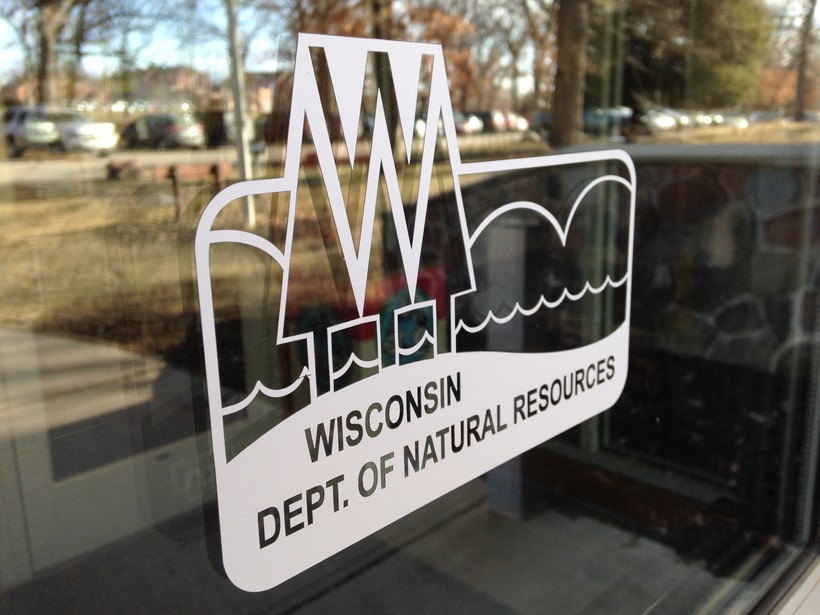Will New Overseers Change DNR Policies?
As Evers appointees replace Walker holdovers on Natural Resources Board, environmental groups hope for changes.
Environmental and conservation groups say they’re optimistic about changes to the board that oversees natural resources policy in Wisconsin after two members recently resigned, including its controversial former chair.
Bill Bruins and former chair Fred Prehn resigned from the Wisconsin Natural Resources Board at the end of last month, ending its conservative majority and allowing Gov. Tony Evers’ appointees to sit on the board.
Scott Laeser, water program director for Clean Wisconsin, said the environmental group believes the board’s new makeup will make a difference in addressing policy issues like regulations for PFAS and nitrates in groundwater.
“We watched things like PFAS groundwater standards get rejected by the old board just about a year ago,” Laeser said. “We’re optimistic that the DNR will be able to revisit and redouble efforts to move forward sensible public health protections as a consequence of the turnover on the board.”
While those standards failed to pass in February, the board unanimously approved restarting the process to craft regulations for the harmful forever chemicals last month.
PFAS regulations have been among the most prominent debates before the policy-setting board for the Wisconsin Department of Natural Resources, which have been influenced by special interests. The Milwaukee Journal Sentinel previously reported that emails showed Prehn’s suggested changes to regulating PFAS in firefighting foam had originally been drafted by the Wisconsin Manufacturers and Commerce. The state’s business lobby and industry groups have voiced concerns that PFAS regulations are too costly and questioned the science behind the state’s recommended groundwater standards.
“As always, our expectation for the Natural Resources Board is that they follow the law, and pursue regulations that are fair, cost-effective, transparent, achievable, and no more stringent than necessary to meet the environmental goals established by the Legislature,” Manley said.
Evers appointed Milwaukee resident Sharon Adams and Drummond school teacher Sandy Naas to the board in April 2021. While Adams serves on the board, Prehn had blocked Naas from taking a seat until his resignation. The governor’s appointees are serving on the board while they await confirmation from the Republican-controlled Senate. The two are among around 180 people that have yet to be rejected or confirmed.
Republican Senate Majority Leader Devin LeMahieu told the Milwaukee Journal Sentinel this week that lawmakers will vote on Evers’ nominations. Even so, he told the paper some appointments to the DNR board were a “little more political” for lawmakers, warranting a closer look. LeMahieu’s office declined WPR’s request for comment Thursday.
Tony Wilkin Gibart, executive director of environmental firm Midwest Environmental Advocates, said Adams has worked for many years on water justice issues while Naas has more than 30 years of conservation experience. He said the board’s politicization has created a backlog of updates to environmental regulations not only for PFAS, but around 20 other substances that pose hazards to human health.
This week, Evers also appointed Viroqua farmer Paul Buhr to fill the seat left open by Bruins. Wisconsin Farmers Union President Darin Von Ruden, an organic dairy farmer, said Buhr embodies ideals that will help guide policies to protect the environment and residents. Von Ruden said he’d like to see the board take a renewed look at regulations scrapped by the DNR in 2021 that would have restricted manure spreading in areas sensitive to groundwater pollution from nitrates, the state’s most widespread contaminant.
“I think they need to bring it back because once the groundwater is contaminated, it’s hard to clean it up,” Von Ruden said.
Fred Clark, executive director of conservation group Wisconsin’s Green Fire, said he hopes the board’s new makeup will yield progress on those water quality regulations along with respect for science, citizens, and DNR staff that he feels has been too often missing.
“Seeing outside attorneys and lobbyists carry more weight than the department’s own staff is just not a good look,” Clark said.
Despite that, advocates for conserving fish and wildlife are optimistic the board will strike a balance among those with differing views on resource management, including Mark LaBarbera, executive director of the Wisconsin Wildlife Federation. He highlighted areas of common ground in the last year, including the unanimous approval of a conservation easement for the Pelican River Forest.
“I believe that people will come in with an open mind and listen to the stakeholders and listen to constituents in order to make informed decisions for the good of all,” LaBarbera said.
Listen to the WPR report here.
Environmental, conservation groups optimistic shifting makeup of DNR board will yield policy changes was originally published by Wisconsin Public Radio.





















